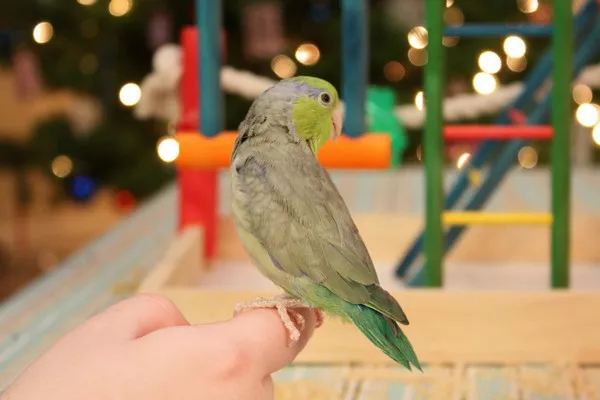Rabbits, with their soft fur and gentle demeanor, have captivated pet owners with their endearing qualities and playful antics. Despite their charming appearance, understanding the nuances of rabbit health and behavior is crucial for providing them with optimal care. One common question that arises among rabbit enthusiasts and pet owners is, “Do bunnies get tired easily?” This question touches upon various aspects of rabbit physiology, behavior, and environmental factors that contribute to their overall well-being. In this article, we will delve into the factors influencing rabbit fatigue, the signs of tiredness in bunnies, and how to ensure they lead a healthy and active life.
Understanding Rabbit Physiology and Energy Levels
To address whether rabbits get tired easily, it’s essential to understand their natural physiology and energy requirements. Rabbits are prey animals with unique adaptations that influence their energy expenditure and fatigue levels.
Metabolism and Energy Expenditure
Rabbits have a high metabolic rate, which means they require a constant supply of energy to maintain their bodily functions and activity levels. This high metabolism is a result of their herbivorous diet, which consists primarily of fibrous plant material. The digestion of fibrous foods requires a significant amount of energy, and this impacts their overall activity levels.
Rabbits also have a unique digestive system that includes a large cecum, where fermentation of fibrous material occurs. This system demands a continuous intake of food, leading to frequent periods of feeding and digesting. Consequently, rabbits may not show overt signs of fatigue as their energy is often spent in cycles of eating, digesting, and resting.
Activity Patterns
Rabbits are crepuscular animals, meaning they are most active during the dawn and dusk hours. Their activity patterns are adapted to avoid predators, and they exhibit bursts of high activity during these times. During the day and night, rabbits tend to rest or sleep in their burrows or safe spaces. This natural behavior can sometimes be misinterpreted as lethargy or tiredness, especially if their activity levels are lower than expected during daytime hours.
Signs of Fatigue in Rabbits
Identifying signs of fatigue in rabbits requires keen observation, as these animals often mask discomfort or tiredness. Here are some common indicators that a rabbit may be experiencing fatigue or related issues:
Changes in Activity Levels
A sudden decrease in activity or reluctance to engage in usual behaviors, such as hopping or playing, can signal fatigue or health issues. If a normally active bunny becomes lethargic, it is essential to consider potential causes, including illness or environmental factors.
Altered Eating and Drinking Habits
Fatigue in rabbits can sometimes be associated with changes in eating and drinking habits. A rabbit that is too tired to eat or drink regularly may show signs of dehydration or malnutrition. Observing changes in their feeding behavior can provide valuable insights into their overall health.
Posture and Grooming
A tired or unwell rabbit may exhibit changes in posture or grooming habits. For example, a rabbit that is overly tired may sit hunched or show signs of reluctance to groom itself. Regular grooming is a sign of a healthy and active bunny, so any deviations from this behavior should be noted.
Behavioral Changes
Behavioral changes, such as increased irritability or hiding more than usual, can also be indicative of fatigue or discomfort. Rabbits are generally social animals, and significant changes in their interaction patterns can signal underlying issues.
Factors Influencing Rabbit Fatigue
Several factors can influence a rabbit’s energy levels and contribute to feelings of fatigue. Understanding these factors can help in managing and mitigating potential issues.
Diet and Nutrition
A rabbit’s diet plays a crucial role in their energy levels. A well-balanced diet that includes fresh hay, vegetables, and a limited amount of pellets is essential for maintaining optimal energy levels. Inadequate nutrition or imbalanced diets can lead to fatigue and other health issues.
Environmental Enrichment
Rabbits require mental and physical stimulation to stay active and healthy. A lack of environmental enrichment, such as toys, tunnels, and space to explore, can lead to boredom and reduced activity levels. Providing a stimulating environment helps prevent lethargy and encourages natural behaviors.
See Also: What is a Good Routine for a Rabbit?
Health Conditions
Certain health conditions can affect a rabbit’s energy levels and contribute to fatigue. Common health issues in rabbits that may cause tiredness include:
Respiratory Infections: Conditions like pasteurellosis can lead to lethargy and decreased activity levels.
Gastrointestinal Issues: Problems such as gastrointestinal stasis or bloat can affect a rabbit’s energy levels and overall well-being.
Dental Problems: Malocclusion or dental disease can cause pain and discomfort, leading to reduced activity.
Regular veterinary check-ups are essential for identifying and addressing health issues that may impact a rabbit’s energy levels.
Temperature and Climate
Rabbits are sensitive to temperature extremes. Both excessive heat and cold can affect their comfort and energy levels. Ensuring that your rabbit’s living environment is well-regulated for temperature and humidity is important for maintaining their overall health.
Managing Rabbit Fatigue
Addressing and managing fatigue in rabbits involves a combination of preventive measures and responsive care. Here are some strategies to help keep your bunny healthy and energetic:
Provide a Balanced Diet
Ensure that your rabbit has access to a balanced diet that meets their nutritional needs. Fresh hay should be the primary component of their diet, supplemented with a variety of fresh vegetables and a small amount of pellets. Regularly check their food and water supply to ensure they are eating and drinking adequately.
Create an Enriching Environment
Offer a stimulating environment with plenty of toys, tunnels, and safe spaces for exploration. Interactive toys and opportunities for mental stimulation help keep rabbits engaged and active.
Monitor Health Regularly
Regular veterinary check-ups are crucial for maintaining your rabbit’s health and addressing any potential issues early. Keep an eye out for changes in behavior, eating habits, or physical condition, and seek veterinary advice if you notice anything concerning.
Maintain a Comfortable Living Space
Ensure that your rabbit’s living space is comfortable and free from extreme temperatures. Provide a cozy, draft-free area with appropriate bedding to keep your bunny comfortable.
Conclusion
In summary, while rabbits may not necessarily get tired easily, their energy levels and activity patterns can be influenced by various factors, including diet, environment, and health. Understanding these factors and recognizing the signs of fatigue are crucial for providing proper care and ensuring a happy, healthy life for your bunny.
By maintaining a balanced diet, creating an enriching environment, monitoring health regularly, and ensuring a comfortable living space, you can help prevent fatigue and promote optimal well-being in your rabbit. Observing your bunny’s behavior and making adjustments as needed will go a long way in ensuring that your furry friend remains active and content.
Related Topics:

























